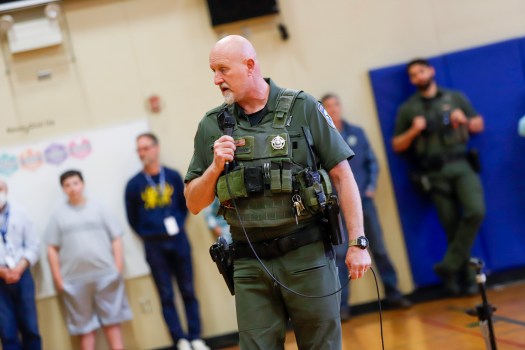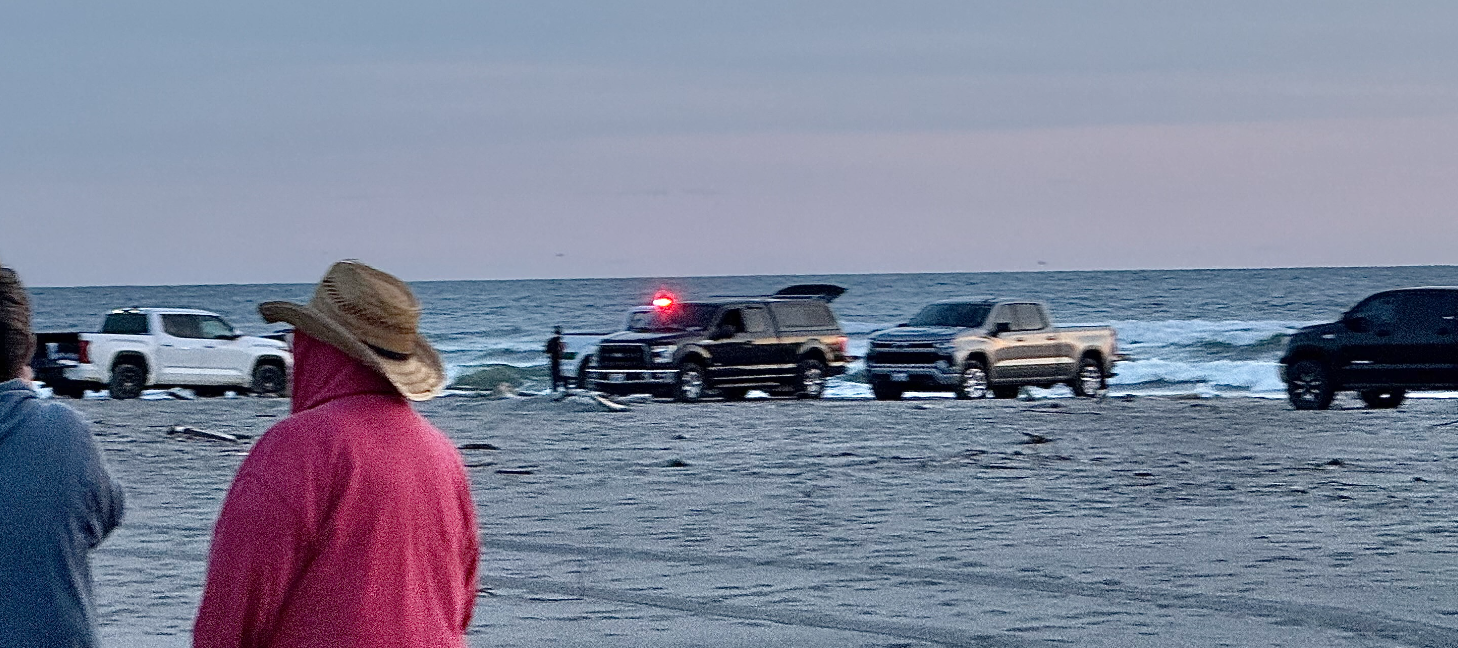Wildlife Q&A enlivens Hilltop end-of-year assembly: Hilltop hosts WDFW wildlife director
Published 9:40 am Wednesday, May 28, 2025
ILWACO — Hilltop Middle School students got a glimpse into the roles and responsibilities of Washington Department of Fish and Wildlife employees during an assembly last Friday, providing an informative and light-hearted look into the daily experience of a WDFW program director and local law enforcement officers.
WDFW Wildlife Program Director Mick Cope was joined by local WDFW wildlife enforcement officers Paul Jacobson and Lane Garrison on May 23, at Hilltop Middle School, where they spoke and gamely answered all questions posed by their middle-school aged audience.
Cope, a friend and former college roommate of Hilltop Middle School teacher Randy Bloom, talked about the role of WDFW and his responsibilities as the director of the WDFW Wildlife Program.
“We preserve and protect wildlife,” Cope said regarding his duties during his 33-year career in WDFW as one of more than 1,500 employees at the state agency.
Cope spoke about commercial fishing and habitat enhancement, asking the audience if anyone “has heard of fish hatcheries?” generating near universal hand-raising among the students.
WDFW officer speaks
After an applause, Jacobsen was the next guest speaker. It was a point in the assembly when students had time to ponder some questions — and they didn’t hold back.
“Who hunts? Who fishes?” Jacobsen asked, spawning a spattering of humorous and intrepid questions from middle school students.
“Aren’t firearms prohibited on school grounds?” said the first student, jokingly referencing Jacoben’s holstered pistol.
“Have you ever been shot?” asked another student in rapid succession. “No,” Jacobsen replied.
“Do you like mustard?” The answer was “Sure!”
“How tall are you?” — 6-foot-7.
“Have you ever been bribed?”
The final question spurred laughter and a “No, never been bribed,” from Jacobsen, who also served 15 years as a local law enforcement officer before becoming a game warden with WDFW.
“We value honesty,” said Jacobsen regarding his approach as a WDFW enforcement officer. “Chances are, if we ask you [about a game or fish matter], we’ve already observed you.”
Jacobsen implored the students to become acquainted and familiarize themselves with other local officers, including Lane Garrison.
“Or he’ll be the one to chase after you if you break the law,” Jacobsen joked.
Interesting facts
Sprinkled throughout the talk were several facts regarding area wildlife and natural resources.
“We have the highest concentration of bears,” Jacobsen said, generating anecdotal stories from students in the crowd, including one about a bear breaking into their family car for a single french fry.
“The best thing to do is secure food resources,” Jacobsen said, adding that black bears are often drawn to unsecured garbage as a food source, resulting in a few bears being euthanized annually by local officers as a safety precaution.
Near the end of the assembly, Jacoben spoke about WDFW laws regarding feeding wildlife, including a new law that became effective May 17, prohibiting the feeding of deer, elk and moose, as “feeding draws animals together where they can spread disease.” In particular, the new law is aimed at preventing the spread of Chronic Wasting Disease (CWD), a fatal, incurable neurological disease with three confirmed cases confined to eastern Washington, near Spokane.








